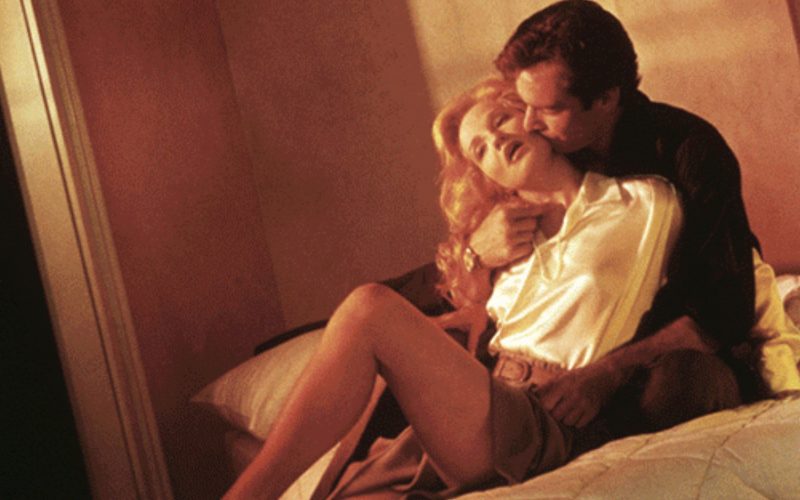The Big Easy (1987).
After his audacious 1983 adaptation of the 1960 Jean Luc Goddard film Breathless, (reviewed here), Jim McBride continued his exploration into the fragility of masculinity in his 1986 movie The Big Easy. Whereas Breathless was set in the City of Angels, The Big Easy, as its name suggests, was set in the City of Jazz, New Orleans.
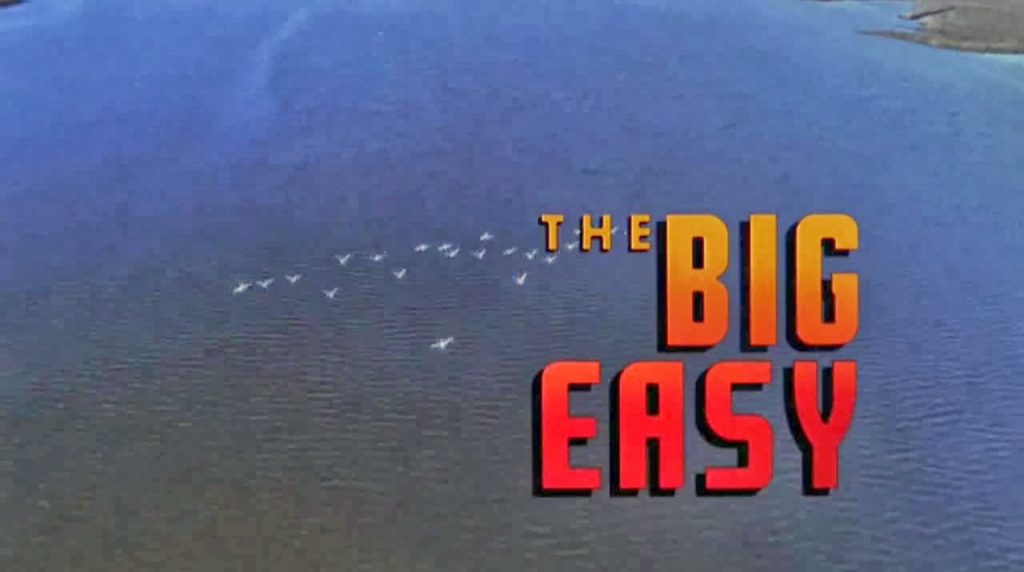
There’s something mysterious about New Orleans that sets it apart from the rest of the United States. With its clash of multiple cultural influences – black & white, English speaking & French, Creole & Cajun and the sweaty heat of the Louisiana swamps – it is a city that proudly wears its identity on its sleeve. The dialects spoken there, with the heady mixture of French, English and Spanish influences, sounds nothing like the rest of the US. As a repeated line from The Big Easy claims – “Just relax, darlin’. This is the Big Easy. Folks have a certain way o’ doin’ things down here.”
On the surface, The Big Easy seems like your standard detective thriller, a genre that was a dime a dozen in the 1980s. A gang member has been murdered and it all looks pretty ordinary. Yet within a few days Internal Affairs is called in to overlook the investigation and no one seems to know why.
The detective in charge of the case is Remy McSwain, played with full-on charming swagger by Dennis Quaid in what I feel is perhaps his finest role. He’s a man who has New Orleans in his blood, someone who revels in the humidity, who feeds off the mystery and sees the people around him as one large extended dysfunctional family.
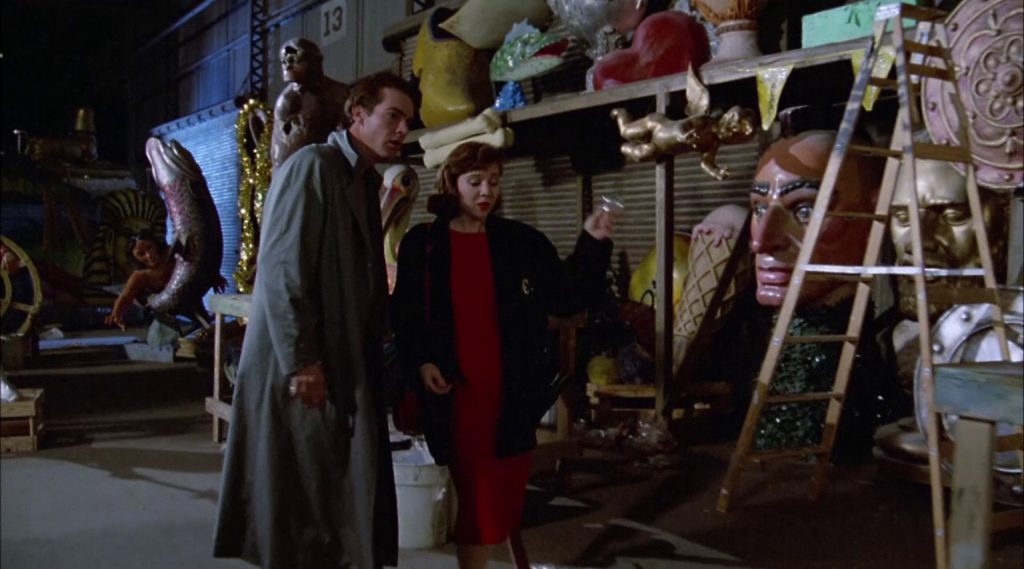
The Internal Affairs detective is Anne Osbourne, played by Ellen Barkin with a fabulous mixture of shyness, insecurity and sex appeal. She’s a character that McBride seems particularly attracted to. In Breathless Valérie Kaprisky possessed a sexy naivety that made her instantly attractive, but Barkin takes it to another level.
Of course, Remy and Anne fall for each other and of course they shouldn’t be together, but they just can’t resist their own urges. This is also pretty standard for the era, but what lifts The Big Easy above the standard fare are a number of crucial things. Firstly, the performances are top-notch. Quaid’s accent and demeanour are spot on. It’s so easy for such confidence to be grating but he manages to stay just on the right side of likeable. The main reason for this is that his character is in no way one dimensional.
This leads to my second point. As stated in my review of Breathless, McBride seemed obsessed with the idea of flawed masculinity. These aren’t men who worry about what they’re doing, yet they possess a certain likeable charm even when they’re committing a crime.
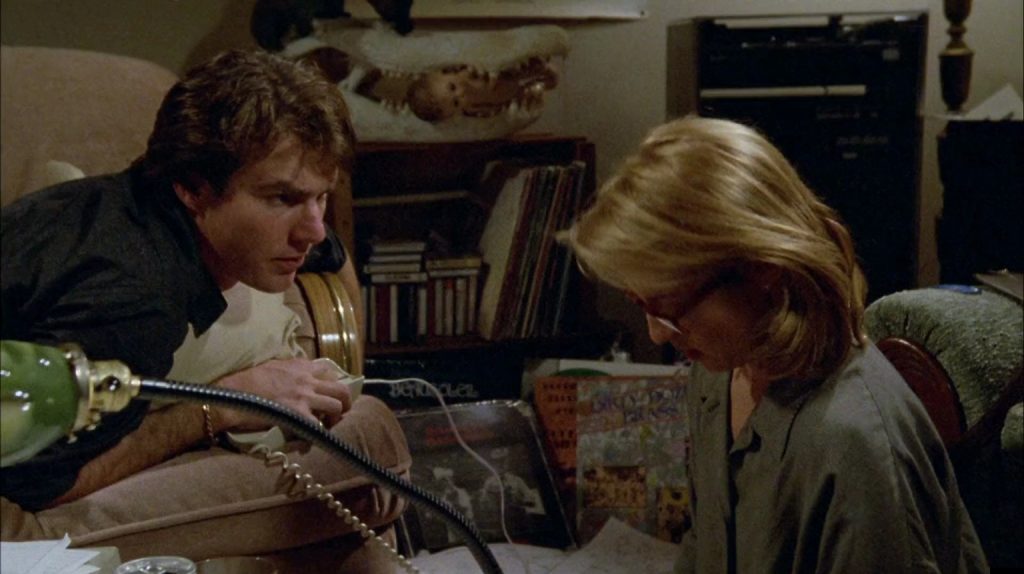
When Remy takes Anne out (to him it’s a date, to her it’s a business meeting) he flaunts the freedoms that the police enjoy in the city. For others it may be considered corruption, to Remy it’s part of the job, a bonus for putting his life on the line each day. He parks in front of a fire hydrant, he jumps the queue to go into a nightclub, he doesn’t have to pay for food. Even when he’s caught cheating the system, the club’s owner refuses to give him the bill because his money’s no good there – he does it with a mischievous twinkle in his eye. Anne is at once repulsed by his audacity yet undoubtedly attracted to his boyish charms. He’s the rogue that she can’t resist.
That is of course until it all goes wrong. Remy is caught on camera taking a bribe and before he can go to court, the tape is mysteriously wiped when someone ‘accidentally’ places a very strong magnet next to it. This is no longer small stuff, this is tampering with evidence. What’s more, the murders keep on coming and it becomes obvious that they are not just victims of gang war – there is evidence that the police are involved.
The relationship between Remy and Anne is crucial here. The love story feels real. The sex scene isn’t a beautifully choreographed set piece of sexual gymnastics, but a hot and sweaty bit of rough and tumble. It’s erotic because you feel what these characters feel, and you want them to get together. Barkin would exude a similar degree of irresistible sex appeal in her love scenes with Al Pacino in Sea Of Love (another excellent and underrated ‘80s detective thriller).
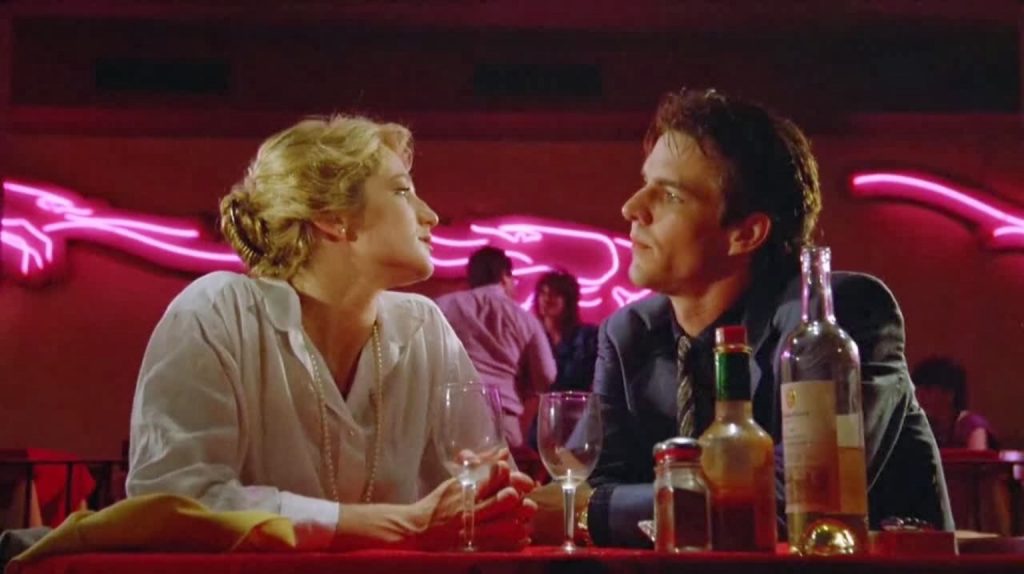
When Remy is caught, the implications are just as real. Despite how much we like Remy and want (and know) that they will get together by the end of the film, we understand Anne’s feelings and predicament. There isn’t one moment that we judge her or think she’s being unreasonable. The reason for this is simply because she is not an object to be desired, but a fully formed human being.
What also sets The Big Easy apart from so many films like it is the music. The mixture of Jazz, Cajun, and Blues that New Orleans is renowned for is on full display, and we get a sense that it’s part of the fabric of these people’s lives. Tipitina by Professor Longhair, Iko Iko by the Dixie Cups, Zydeco Gris Gris by Beausoleil, and even Quaid himself singing Closer To You – the soundtrack is a must-have for fans of this style of music. Although many of the songs are in French, I still listened to it non-stop when I was younger and still like to dip into it now and again. Like the film, it captures the city of New Orleans wonderfully.
Perhaps the biggest star of the film – which also features Ned Beaty, John Goodman, the wonderfully coquettish Lisa Marie Persky and the great soul/blues singer Solomon Burke as Daddy Mention – is New Orleans itself. McBride and cinematographer Affonso Beato, really capture the clamminess of the heat, and by the end of the film, you’ll probably be sweating yourself. But it’s not an unpleasant mugginess, instead it’s a steaminess that makes you feel like you’ve had a good time.
With its believable love story, convincing accents (to these Brit ears at least), peculiar yet fun characters, great music, and solid direction, The Big Easy is all that New Orleans is – a gumbo of great movie-making.
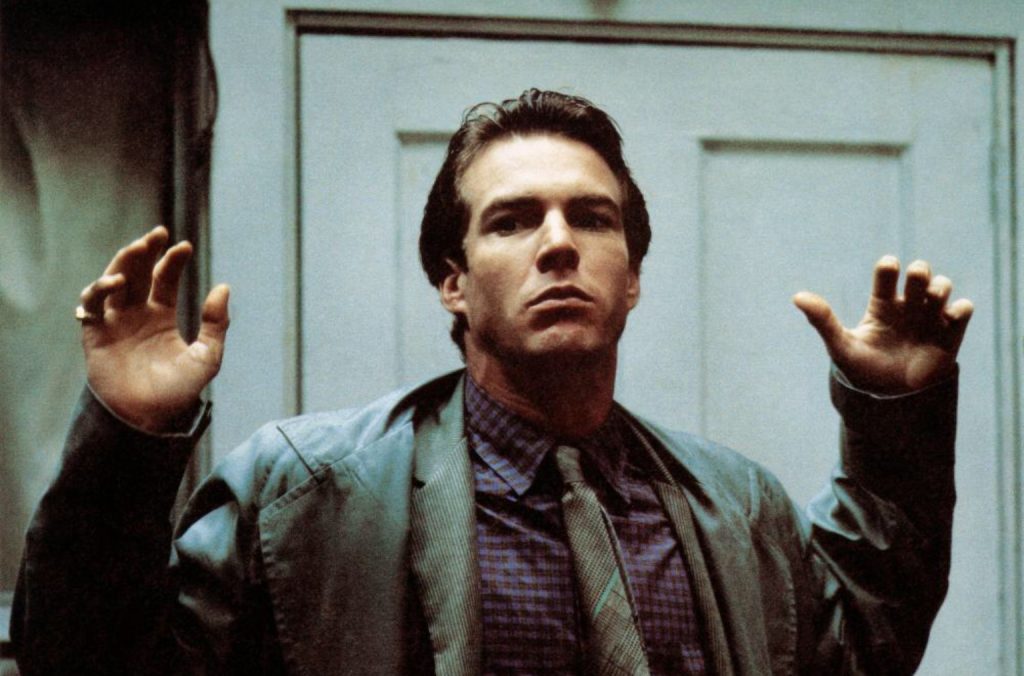
The ending of Breathless is nihilistic. There is no way that Jesse can survive. He’s too self-destructive, too far down a well-trodden path. The ending of The Big Easy is much more optimistic. There is redemption for Remy but that’s only because he had much to lose. Jesse had nothing to lose and so had nowhere to go. Remy’s old life seemed complete, only he couldn’t see that it was built on lies. He loses his family and his faith in the institute he loved, yet comes out the other side stronger because, in the process of losing, he also gains something more real.
The ending is conventional but that’s only because the plot calls for it. That’s ok because that is not what the film is about. The late critic Roger Ebert gave it a full four stars and summed up his review as follows;
“Forget it’s a thriller. See it because you want to meet these people.”
This is what the film is about. Two flawed individuals, fighting in a corrupt system, and despite the pitfalls they face, the disappointment that tears at the fabric of all they hold dear, they still fall in love. And that’s what New Orleans is all about.
Film ’89 Verdict – 9/10

